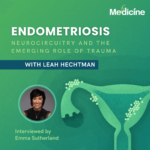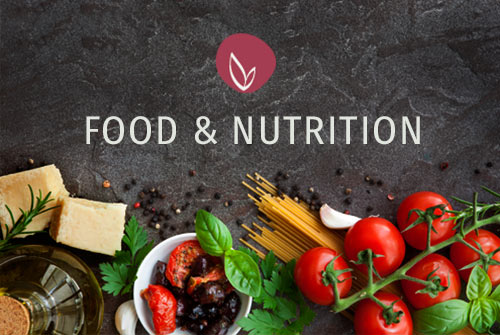There are two major inflammatory bowel diseases (IBD) – Ulcerative colitis (UC) and Crohn’s disease (CD). Both present with similar symptoms so treatment is often very similar. UC is a disease of the large intestine (colon); whilst CD often affects the lower part of the small intestine (ileum) and often spreads to all layers of the intestinal wall. Both produce symptoms of abdominal pain, diarrhoea, bloating and others. In UC, the diarrhoea often contains mucous and blood, whilst in CD, the diarrhoea can be frothy and fatty (steatorrhoea).
Ultimately they are two conditions that are not pleasant and sufferers of experience significant impact on their day-to-day life. There are a few proposed reasons for the development of either IBD including:
Pathogenesis
Dietary factors
The most common offending food groups include wheat, gluten, dairy products (cow’s milk especially), fructose intolerance, tap water and general ‘rubbish’ diets that are highly refined, processed and laden with chemicals. Fructose intolerance is not as commonly diagnosed as lactose intolerance, however, its prevalence is suspected to be quite high. Approximately 19.1% of Australian adults report reactions to certain foods.
Reactions to food can be divided into toxic and non-toxic reactions. Toxic reactions involve food toxins that may be naturally present in food or a consequence of food processing, contaminants or additives. In the modern world these reactions are rare due to diet variety and food processing standards. They are dose dependant reactions and have the same effect on everybody.
Non-toxic food reactions can be further divided into immune and non-immune mediated reactions. Reactions that involve immune activation are mediated by immunoglobulins, especially immunoglobulin E (IgE) but also possibly IgG, IgA and IgM. Non-immune mediated food hypersensitivity reactions are often termed ‘food intolerances’ and include fructose and lactose intolerance.
Any person suffering from IBD, should conduct a thorough review of their dietary intake to ensure that there are no food intolerance or allergy reactions present.
Stress and modern day living
When you review the statistics, people that live in the city have a higher incidence than those that live in the country. There are number of contributing aspects to this statistic. Environmental pressures including toxin exposure, pollution and lack of Vitamin D/sunlight/fresh air are general considerations. Some people think that country dwellers have lower stress levels, but I’m not too sure about that one! As such, it is best to reduce stress levels for everyone as a general consideration as much as possible.
Nutrient deficiencies
There are a number of nutrient deficiencies associated with IBD presentations, however, the most curious one is undoubtedly the wonder nutrient of the moment – vitamin D. Research correlates deficiencies with everything from poor Calcium utilisation and management, poor bone health, lowered immune response, high allergy response and lowered mood to name a few. Current statistics suggest that Vitamin D status is notoriously low in Australians (and everyone else around the world). Remember that the darker your skin tone, the higher the melanin content and the higher your vitamin D requirements. Anyone suspected of suffering from IBD should ensure that they get their levels assessed.
Digestive infection
There are a number of interesting papers that correlate certain infections with the incidence of IBD (especially CD). Often you’ll find the story of ‘never well since’ – overseas holiday, food poisoning, vaccination, or gut bug. Determining if this is relevant is essential as otherwise you’ll never get to the root of the problem.
Treatment
Dietary modifications
Essentially what we have to focus on is a digestive system that has a huge amount of inflammation. Imagine this inflammation and what the digestive tissues would look like – red, swollen, puffy and generally in pain. With this inflammation comes a negative effect on nutrient absorption. As such a number of deficiencies are likely to be present.
In the initial stages, adopting a ‘baby food style’ diet is the best approach. If you consider that the digestive system closely resembles the immature one of a baby, then modifying one’s diet accordingly is both logical and healing. In keeping with this idea, dietary changes should include:
- Avoid all pro-inflammatory foods including red meat; spicy foods (chilli, pepper); coffee; alcohol; deep fried, trans and rancid fats; processed or refined foods
- Avoid all numbers, colourings, preservatives and long words that you can’t pronounce or are not familiar with. One of these substances – carrageenan – has been used in experiments to induce IBD in rats…
- Avoid tap water and only drink spring or filtered water to avoid recontaminating your digestive system with rubbish or introducing new toxins
- Especially in initial stages, encourage pureed, stewed and well cooked foods. Take the burden off your digestive system and allow recovery before you bombard it with difficult meals. Popcorn is an absolute no-no!
- Encourage anti-inflammatory foods such as oily fish rich in omega 3 fatty acids
- Eat small, regular meals at regular intervals to reduce the stressful impact of larger meals that are more difficult to digest.
- Encourage organic, nutrient rich foods
- Encourage food sources of mucopolysaccharides including wholeoats, okra, slippery elm, aloe vera (gel) and oysters. Mucopolysaccharides are substances which improve wound healing, tissue regeneration and provide a protective barrier over the inflamed digestive tract.
- Encourage pre- and probiotic foods to support healthy gut microecology. Foods to encourage include yoghurt, keffir, miso and sauerkraut.
- Avoid cooking styles that leach nutrients such as boiling, frying, barbequing, and deep-frying.
- Encourage soluble fibre rich foods such as whole oats cooked as porridge, flaxseeds, psyllium husks, ground nuts and seeds and legumes and pulses. Ensure all are eaten with adequate water and hydration.
Other tips
Prescriptions
There are many nutrient and herbal prescriptions that are beneficial but it is essential to see a qualified practitioner to ensure that the prescription is individual and holistic. General recommendations typically include a probiotic supplement, glutamine and liquid multivitamin/mineral preparation. Generally it is recommended to keep all prescriptions in liquid or powder form to reduce any extra burden placed on the digestive system.
General health and lifestyle
Stress avoidance is the most crucial recommendation. It can be challenging, as stress is a natural part of life. Being selective about what stressors you allow and what you prevent is a good idea. Developing stress management strategies is also beneficial.
Avoid exposure to passive and active cigarette smoking. Not only does it cause a variety of diseases, it also exacerbates digestive inflammation and increases the risk of developing bowel cancer as a secondary disease manifestation.
Ask yourself if there are deep-seated unresolved emotions being held in your digestive system. Often IBD sufferers do not allow themselves the opportunity to explore, manage and resolve issues that are literally ‘eating away at them’. It may be worthwhile to journal your thoughts for a week and see what arises or see a counsellor to discuss issues in more detail.
Conclusion
Overall IBD is a challenging condition for sufferers. With a few dietary and lifestyle modifications most experience a significant amount of relief. With a little more investigating and treatment, some find complete resolution of their health concerns as well. If you or someone you know suffers from it, don’t put up with it and do something about it!


